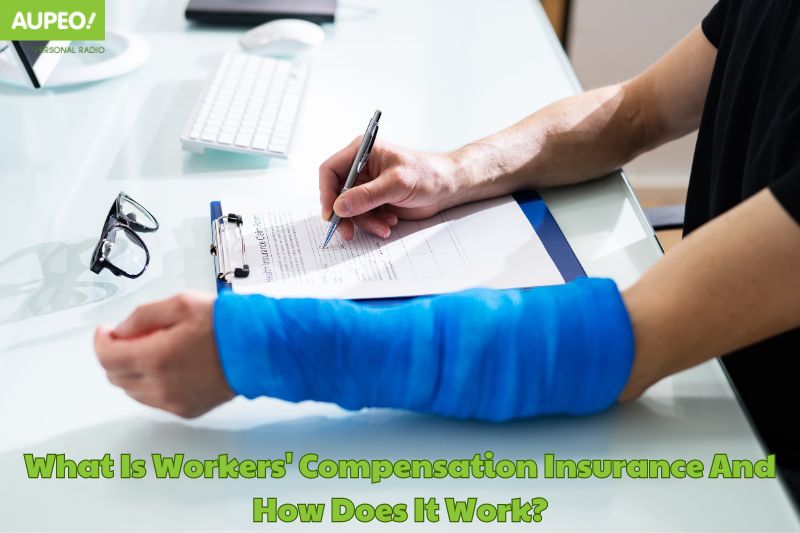Welcome to AuPeo.com, where we demystify “what is workers compensation insurance” Whether you’re a business owner or an employee, understanding this insurance is crucial for workplace safety and financial security.
Contents
Understanding Workers’ Compensation Insurance
Workers’ compensation insurance can seem like a maze, but it’s essentially a safety net for employees who get injured or ill because of their jobs.
It’s an employer-funded program that ensures workers receive medical care and compensation for lost wages when they can’t work due to workplace injuries.
The core idea here is simple: help employees recover without the financial burden falling solely on their shoulders. So, how does workers’ compensation work? Get more info here!
The Claims Process in Workers’ Compensation

If you ever find yourself needing to claim workers’ compensation, knowing the process can greatly simplify things. Firstly, you file a claim with your employer, who is legally bound to forward it to their insurance.
Here’s where the Workers’ Compensation Board comes into play, stepping in to handle any disputes between you and best workers comp insurance for small business. This process ensures that claims are handled fairly, focusing on getting you the support you need rather than getting tangled in blame.
Employer Responsibilities and Employee Rights
Employers have a big part to play in this system. They are obligated to keep the workplace safe to prevent injuries and must cover the costs associated with workers’ compensation insurance.
This doesn’t just protect employees; it also protects businesses from potential lawsuits. On the flip side, employees have rights too.
They’re entitled to compensation if they get injured, regardless of whose fault it is. This balance helps maintain a fair workplace where safety is prioritized.
Financial Implications of Workers’ Compensation for Employers
Now, let’s talk numbers. Employers pay premiums for workers’ compensation insurance, and these can vary. Premiums are calculated based on the level of risk associated with different types of work. For example, a construction worker might have a higher premium than an office worker.
Employers can work on reducing these costs by implementing strict safety protocols and regular training. This not only lowers the risk of injuries but can also reduce the premiums they need to pay.
Common Misunderstandings About Workers’ Compensation
There are plenty of myths floating around about workers’ compensation. For instance, some think that if they caused their injury, they aren’t eligible for compensation.
Not true! – Workers’ compensation is a no-fault system, meaning benefits are paid regardless of who’s at fault. However, there are exceptions, like injuries caused by intoxication or intentional self-harm.
Understanding these nuances can prevent frustrations during the claim process and help ensure that employees know their rights and employers their responsibilities.
Conclusion
In conclusion, workers’ compensation insurance is a critical component of modern employment, balancing employee safety and financial health.
Both employers and employees have roles to play and rights to protect, all governed by a system designed to support those who contribute daily to our economy.
Remember, knowing these details can make a big difference in how effectively and confidently you navigate the world of workers’ compensation.
Thanks for exploring workers’ compensation insurance with us at Aupeo.com. Remember, having the right knowledge can empower you to make informed decisions for the safety and well-being of everyone in your workplace. Stay protected and informed with our comprehensive guides and updates!

